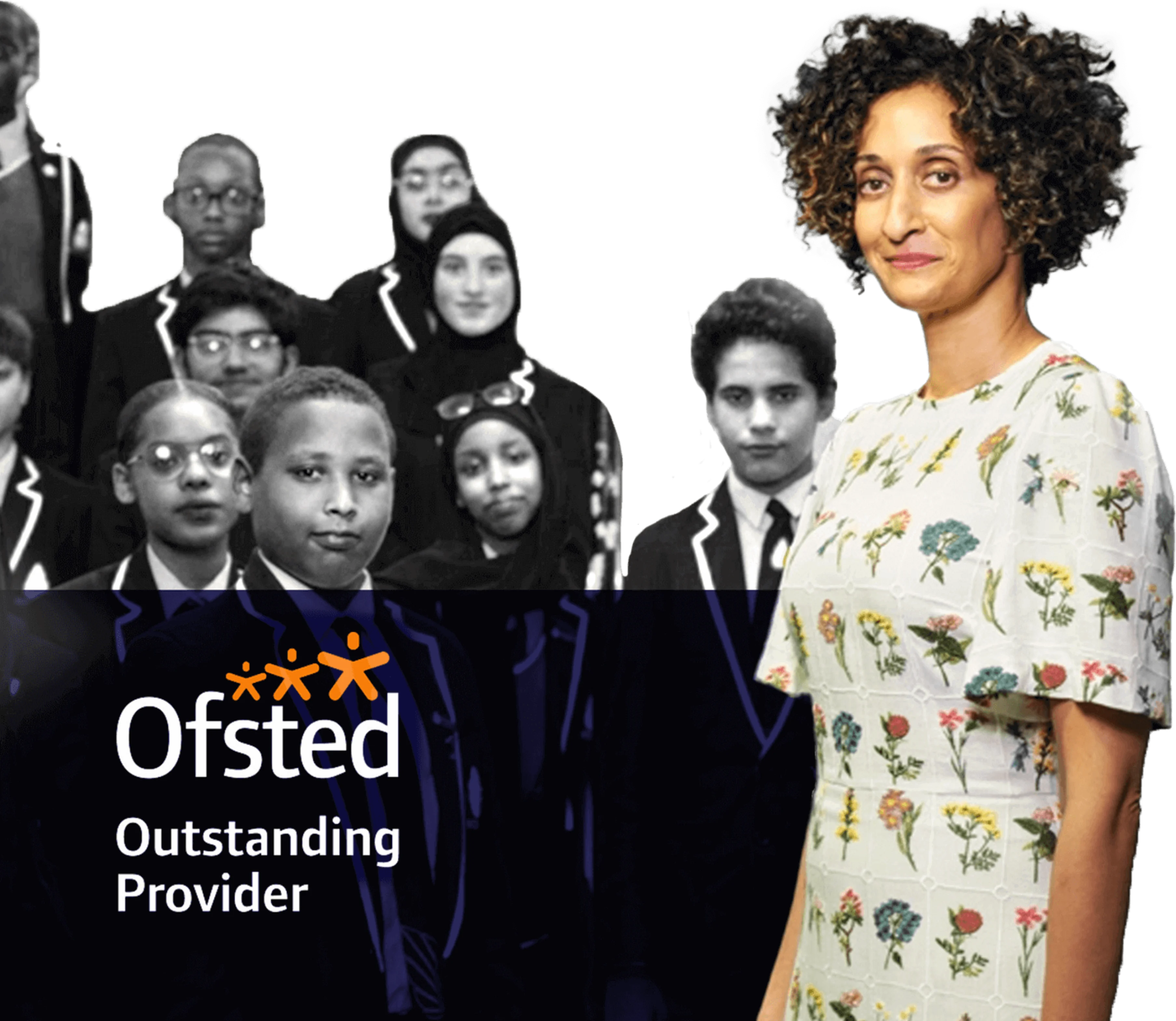Forcing 18-year-olds to study maths is a bad idea


As the bells of a new year ring, I often reflect and ask myself many questions. Usually typical musings about what the incoming year will bring and whether this will finally be the year I stick to my resolutions. I didn’t expect to ruminate on whether mandated maths can fix the broken education system in the UK.
We all entered 2023 a little whip-lashed from the political tornado of 2022. Still struggling to go a week or two without a political scandal making the headlines, we stared bleary-eyed into the future of this new year. Rishi Sunak (our current PM, in case you missed it) meanwhile was setting his sights on his “priorities for the new year”. We had barely taken down the last of the tinsel and shrugged off the last of the festive hangovers when the PM announced his ambitious plans for a “better future for Britain”. One of those announcements was to introduce the studying of maths until 18 for all pupils in England.
If you didn’t see a headline about this, I’d be astounded. The mainstream media ran with this one for days and the responses across opinion pieces, talk shows and social media were mixed. Naturally, I waited a few weeks, simmered on the news and then decided to come to you with my own ‘hot take’.
This announcement by the PM on the position of maths in the curriculum applies to England only. This is because education is a devolved matter in the UK. Maths is currently mandatory until the age of 16 in England. Rishi Sunak thinks this leaves them ‘less equipped’ for the jobs of the future and an extra two years of study will fix that.
I’m Scottish, I live in Scotland and I’m past school age (thankfully!). This announcement won’t affect me directly but I have an opinion on it nonetheless, like most people on the internet these days. The reason is that, whilst I’m past school age, I have spent the past ten years since I left school reminiscing with friends on the memories of school life. I’ve pondered and reflected on the lessons we learned (socially and educationally). The resounding conclusion has most often been that we learnt too much that didn’t apply to our adult lives - Pythagorean Theorem, I had to Google the proper name, for example. Meanwhile, there have often been grumblings about lost opportunities to prepare us for the practicalities of being a grown-up. Why did nobody sit us down and explain mortgages or taxes or proper email etiquette? Instead of that repeat viewing of Saving Private Ryan in History, we could’ve been learning how to budget or how to properly prepare avocado on toast.

The irony of this is that the Government points to managing personal finances as evidence of our need for “a decent level of maths”. How the volume of a cylinder helps with understanding what the increase to your mortgage repayments will be following the mini-budget fiasco is beyond me. Despite my satire, I do understand that my ability to manage my finances comes from a percentage of the math education I received. I am sceptical about how high that percentage is in reality. Even with 11 years of math lessons, I still didn’t know what porting a mortgage meant.
The government state that this maths to 18 plan will equip future generations with skills to “feel confident with finances in later life” with specific examples of mortgage deals and savings. An extra two years of long division won’t help, Prime Minister. It also begs the question of why you need an extra two years to teach young people these skills. Surely they should be armed with these skills long before their National Insurance number gets issued and they start to earn money? Let’s scrap maths until 18 and look into adapting the curriculum model or invest in skills for life classes instead.
Sunak is concerned that, currently, only fifty per cent of 16-19-year-olds study any maths. He believes this to be disappointing because we are in a “…world where data is everywhere and statistics underpin every job, our children’s jobs will require more analytical skills than ever before”. From a personal perspective, I find this reasoning interesting. I’m a lawyer and I didn’t study any maths or maths-based subject at Higher level; A-Level equivalent in Scotland. I have rarely needed maths in my career. I have needed skills such as communication, creativity, research and critical thinking. That’ll be why I got into university with all my English-based Highers, I’d reckon. I make this point because I think Sunak is being too simplistic by suggesting that the current and future working world that today’s children, and those yet to come, will enter requires it.
Trusting a partner to catch me during a dance production taught me valuable team-building skills I rely on every working day
By 18 most ‘kids’ are seen as young adults. They might have part-time jobs in the school holidays or on weekends. They may drive to school in their own car or skip to a waiting driving instructor when the bell rings. They will be making major life decisions, maybe for the first time. Is it appropriate for the government to dictate what these young people should study for their final school/college years? Autonomy is so empowering and I’d like to think the kid behind me at the McDonald’s drive-thru can pick the courses they study just as freely as they can order 20 chicken nuggets. I don’t mean to be blasé about education choices. I know how important these years are for charting the course of a person's life. I also know I watched fellow students who had been coerced to go to university by pushy parents drop out en masse. Adolescent autonomy in educational choices is vital. When we dictate to these young minds what they must study we run the risk of infantilising them and creating disengagement with the school system.
Sunak’s speech was particularly lacking in explaining how this mandated studying would be assessed and graded. I’ll take a wild guess and bet that the old reliable timed exams in stuffy halls are the furthest his imagination can stretch to. I was mediocre at maths, preferring the flexibility of English and the creativity of Art and Drama. Maths was so rigid and dull. What was most frustrating however was that I could grasp the concepts and get the answers right in the classroom and yet collapsed under the pressure of exams. My teacher couldn’t understand it, all of my other assessments showed a general grasp of the topic but under the sound of that ticking clock and scuffling of invigilators’ feet, I couldn’t calm my nerves and take the time to get the right answer. What nobody ever considered in my education was mixing the arts with traditional subjects. For example, The Times Education Commission Report 2022 reported on the “astonishing” results achieved from teaching maths to girls through dance by a US after-school club.

We know that private schools are prioritising and investing in arts provisions. They clearly understand the importance of creativity and the ability to participate in the arts for children. Personally, they were an outlet for a shy kid who was a little lost. My participation in arts subjects at school and extracurriculars have formed the adult I am today. I’m able to address a boardroom full of people because I spent my high school years on a stage. Trusting a partner to catch me during a dance production taught me valuable team-building skills I rely on every working day. Imagine what investing in the arts and combining that with traditional subjects could achieve. It’s plausible the future generation could pirouette away from school with better math grades. If only I had been given the same opportunities!
In response to this announcement, The Independent reported that there aren’t enough maths teachers to meet the demand this would create. They quote Geoff Barton, general secretary of the Association of School and College Leaders as commenting:
“The education system doesn’t need more policy gimmicks or random targets, but serious and sustained investment in schools and colleges after a decade of chronic underfunding, and a strategy to address teacher shortages which are at crisis point.”
There are reports of PE and Geography teachers taking maths lessons because of the lack of availability of qualified maths teachers. If the current curriculum can’t be achieved because of a desperate lack of teachers in this area, how will an extension of additional two years help? No disrespect to PE teachers but I reckon the kids would be better off without an extra two years of maths from someone who is not a specialist in that subject. This shortage of teachers is also not helped by the constant under-representation of women within science, technology, engineering and mathematics (STEM) careers and professions, which stifles the engagement of women as would-be teachers in these subjects. The government haven’t commented on where the additional resource will come from. It’s pretty clear that the resource barely exists for the existing curriculum.
Call me a pessimist but I struggle to accept that throwing kids in math for another two years will solve the teacher shortage or help break the social biases that block women from STEM subjects.
Rishi Sunak needs to engage in critical thinking and think outside the box. I’m sure he’s got an abundance of people around him more than qualified (on paper, at least) to brainstorm some creative proposals. I can’t accept that mandated maths for every pupil in England until the age of 18 is the best he’s got. I’m not here to argue for the downfall of math. Math and numeracy skills are essential but, are they so important to all kids that they should be mandatory until 18? Is this the best option our government can conjure up rather than revisit the way math is taught, or the relevance of the current math curriculum and/or course options? Even better, why not take a leaf out of the private sector books and invest in the arts? It can’t be that radical a thought for Rishi Sunak considering he and his political pals are all private school alumni.
Ultimately, this is a headline-grabbing announcement that got people talking. Perhaps digging down into helpful resolutions to the current numeracy skills gap, such as more teachers with better pay, a more practical curriculum or alternative personal financial skills courses, isn’t as snappy as “maths until 18”. Snappy headlines don’t plug the skills gap either, though.
Written by
Hannah LeslieScottish lawyer, bibliophile and feminist. Love to travel, by plane or by my imagination. Often found surrounded by four-legged pals.
Read next
What do A-level results and Bridgerton have in common?

Archie Rankin
Are we wasting our time with climate activism?

Eve Gardiner
Why I'm glad I went to a school with strict rules

Laura Calnan
Weekly emails
Get more from Hannah
The Fledger was born out of a deep-seated belief in the power of young voices. Get relevant views on topics you care about direct to your inbox each week.
Write at The Fledger
Disagree with Hannah?
Have an article in mind? The Fledger is open to voices from all backgrounds. Get in touch and give your words flight.
Write the Contrast